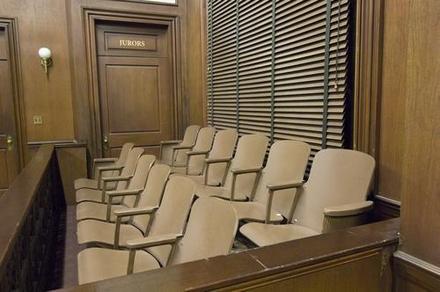TELEPHONES ANSWERED 24 HOURS A DAY
Reasonable Doubt in a Criminal Case
 In a criminal case, the prosecution bears the “burden” of proving the defendant is guilty of committing a crime. The standard used in criminal cases is “beyond a reasonable doubt.” In other words, a criminal defendant will not be found guilty of committing a crime unless the judge or jury is convinced “beyond a reasonable doubt” that the defendant committed the crime. What “beyond a reasonable doubt” means, however, is a tricky question.
In a criminal case, the prosecution bears the “burden” of proving the defendant is guilty of committing a crime. The standard used in criminal cases is “beyond a reasonable doubt.” In other words, a criminal defendant will not be found guilty of committing a crime unless the judge or jury is convinced “beyond a reasonable doubt” that the defendant committed the crime. What “beyond a reasonable doubt” means, however, is a tricky question.
The Parties Are Not Encouraged to Define Reasonable Doubt
In some criminal trials, the prosecutor, the court, and sometimes the defense attorney may try to define or explain what constitutes a “reasonable doubt.” For instance, the prosecutor may attempt to compare “reasonable doubt” with a puzzle missing only one piece. In this instance, the prosecutor would say, there is little doubt as to what the puzzle depicts even if all the pieces are not present. In another well-known example, a prosecutor attempted to explain that reasonable doubt was being beyond 95 percent certain that something occurred. In each of these cases, the respective courts found it was an error for the prosecutor to attempt to define or explain the reasonable doubt standard to jurors. Both cases were sent back to the trial courts for a retrial.
In Illinois (as well as other states), it is ultimately up to the jury in a particular case to determine what constitutes a “reasonable doubt.” (See for instance a sample jury instruction, Instruction #2.03, given in Illinois criminal cases.) When an attorney or judge attempts to define or explain the term “reasonable doubt,” the risk is created that a defendant will be convicted on proof that might not otherwise meet that standard.
Appealing an Erroneous Jury Instruction
When one party attempts to define or explain the reasonable doubt standard or otherwise gives the jury an erroneous instruction on how to decide a criminal case, it takes quick thinking and a speedy objection by defense counsel in order to preserve the issue for appeal. If such action is taken, the appeals court will review the jury instructions de novo (with a fresh set of eyes, so to speak, without regard for how the trial court ruled). But if no timely objection is made, it may be difficult (or even impossible) to argue the improper instruction on appeal.
Contact the Law Offices of Hal M. Garfinkel LLC, Chicago Criminal Defense Attorney
When you have been charged with a state or federal crime in Illinois, you need a strong and forceful advocate who will hold the prosecution to their burden of proof: beyond a reasonable doubt. This includes hiring an experienced Chicago criminal defense attorney familiar with jury instructions and who is able to keep the prosecution’s and court’s comments in check. Hal M. Garfinkel is experienced in representing criminal defendants both in state and federal courts, and will ensure your right to a fair trial is protected. Contact the Law Offices of Hal M. Garfinkel LLC, Chicago Criminal Defense Attorney today at 312-629-0669.




